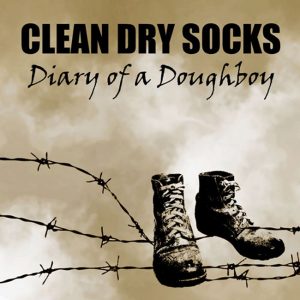Or at least to the three dozen people who read my blog.
I didn’t make my self-imposed writing deadline of August 31. Last year at the beach I promised myself that by August 31, 2013 I would have my first novel ready to start shopping out to publishers. If you ready here regularly (and if not, why not?), you’ll know that as much as I tried to plan, the past year didn’t work out that way. I’m okay with that. Yet I remain determined to finish this book.
So, I’m going out on a limb. While I’ve allowed a few others to read this, mostly through the times I was doing Nanowrimo, I’ve not shared this chapter or any of this work with anyone else. Until now. Let’s put it out there. You tell me if I’ve got a book in progress or if I need to change my plans yet again. But I think by taking this step, I’ll get motivated, or get real, about my possibilities. Either I’ll be embarrassed into finishing it, or I’ll be embarrassed into putting it on the shelf.
The working title is “Not Much to Talk About.” And no, while this does have elements of my life and my home (see Change of Venue), this is not autobiographical. The closest resemblance to a “real” character in this writing is Sam the Labrador. Everyone else, including the protagonist, is a composite of people I’ve known or read about through some 55 years.
So, here it is: “Not Much to Talk About.”
Chapter One
I’ve always dreamed of writing the great American novel, but I never knew if I could drink enough bourbon to be the southern author I wanted to be. Still, I figure a man has to try. Everyone needs a life goal.
So, I’m sitting here on the back porch of the family home and I get a bit distracted looking out over the creek. It’s a beautiful spring evening here in southwest Virginia. The redbuds and the dogwoods are in bloom. The birds are singing. I’ve always loved it here.
Calvin’s the name. Calvin Lee Sublett to be exact. Sublett is the Americanized version of our Huguenot name. Our family came to Virginia in the 1600s and Mama would always be sure that you knew that. Daddy insisted on the name Calvin as well, just in case people didn’t already know that we were staunch Presbyterians. And, Lee, well, this is the south after all.
Daddy and Mama are gone now. Daddy died in 1978 while I was away working in Atlanta. His heart just finally gave out on him. Among the many things he left to me was this heart murmur. I guess I can be grateful since when I graduated from high school in 1970 my draft number was seven. I was heading to Vietnam but was rejected for medical reasons.
My younger brother David went the next year. He didn’t wait around for his draft number to be called. Just like my best friend Chuck, he enlisted the day after graduation. By October they were on their way to Southeast Asia. Just a few months later Chuck came home in a flag draped coffin. David never quite got over that and while Mama had raised us with her values of clean living, no drinking, no tobacco and regular church attendance, David ended up drowning in a bottle.
Even though she never quite recovered from David’s death, we thought Mama would outlive us all. But I lost her as well a few years back. Truth is I’ve lost everyone who ever mattered.
Mama was the reason I moved back home to southwest Virginia. I had been in Atlanta writing for a newspaper there for years. When Mama had her stroke I came home to take care of her and just never went back to Georgia.
After Mama died, I was going through the house trying to clean things out. The family had lived in this house since the original house was destroyed by fire during the Civil War. That pretty much ruined the rest of the farming operation as well.
I was cleaning out closets one day and ran across this old Smith-Corona typewriter and it’s been staring at me ever since. This morning I got it out and cleaned it up. It works almost like new and I even found a couple of spare ribbons. I set it up out here on the back porch because it’s screened to keep away the bugs and critters, and I thought about writing that book.
I write professionally. I went to school and got a degree in English and Journalism and have written for newspapers or magazines ever since. When I moved back here I took over editing for the New River Courier Journal. So, writing comes a bit naturally.
This is a different kind of writing though. That’s why the typewriter intrigues me. I’ve got access to all the computers I need down at the newspaper office. And I’ve got my own laptop here at the house.
Still, there’s something about banging out a story on this old machine. The click-clack of the keys is fascinating. It sounds like work being done.
So I write, “Chapter One” and take another sip of Virginia Gentleman. I tell myself that’s a good start and reach for another Marlboro.
“Damn, I’m almost out,” I think and remind myself that tomorrow I need to go to the store. Tomorrow’s Saturday and most folks will be in town anyway. I’ll pick up some groceries, go by the liquor store and stop in at the truck stop for Edna to fix me breakfast. That’s pretty much how I spend every Saturday.
I guess folks think I’ve got a pretty boring life, but it seems comfortable to me. I’m sixty-one and single. Well, technically it’s divorced. But the way I see it, the fact that Dahlia and I never belonged together pretty much means we never were. She wouldn’t move back here from Atlanta. After all, he was there. Thank God we never had kids.
But, I’m set in my ways. At this age I figure a good day includes a regular bowel movement and the fact that I don’t have to write my own obituary. Edna keeps telling me I need to get married. But I tell her she’s crazy.
“You know Sarah Ross is sweet on you,” she’ll say.
“Let it go, Edna,” I’ll tell her back.
Sarah Ross and I were an item way back in high school. She was pretty and had the most incredible auburn hair. But when I went away to college, she didn’t wait for me. She fell for my best friend Chuck and they eloped just before he headed off to Camp Lejeune. At least that’s the way the story was told to me. By the time I was home for spring break, Chuck was dead and Sarah Ross was a very young widow.
After that she turned bitter and reclusive. She moved back in with her mother and still lives there in the house she grew up in. She got a job doing secretarial work at Virginia Tech and has worked there ever since. Over the years, she’s just gotten plainer and plainer. She still stays involved with her church and I understand that she does some sewing for the missions’ society. Mostly she works and takes care of her mother. Miss Bessie May wouldn’t have it any other way.
I’m not looking to get involved with anyone anyway. I’m too old and set in my own ways. Like I said, I’m comfortable here. Besides, there are too many old and unpleasant memories with Sarah Ross.
I take another sip of bourbon and stare at the blank page. I wonder if this was a good idea after all. It’s easy to write about the latest town council meeting or the Baptist ice cream social. Those are important to the readers of the Courier Journal. But I want to write a book that means something. I want to write a book that actually says something.
At my feet I hear a low growl.
“Easy boy, “I say to Sam, my faithful Labrador retriever. Sam came with me as part of the divorce settlement. I got him, my car and my clothes, and all the bills. Most of that was taken care of now and Dahlia had remarried so I finally was released from the alimony.
I reach in and get my next to last cigarette and bring it up to light.
“You smoke too much Calvin Sublett,” I hear a voice coming around the house and I realize what was making Sam growl. He looks up and when he sees, as I do, Sarah Ross Anderson has come calling; he goes back to his nap.
“Evenin’ Miss Sarah Ross,” I say, holding off on the cigarette until later. “Isn’t this just perfect weather?”
“Yes it is,” responds Sarah Ross, “But soon we’ll be eaten alive with mosquitoes and wishing for cooler temperatures.”
“I suppose you’re right,” I mumble. Then remembering my manners, “What brings you out here this evening?”
“I’ve got some fresh eggs that I thought you could use. With the new Kroger store we can’t sell or use all our girls are producing and I hate to see them go to waste.”
“Why, that’s very kind of you, “I stand and open the screen door of the porch for her to come on up.”
“I brought you a pie as well,” she says. “The Methodist Church is having dinner on the ground this Sunday and I made an extra one. It’s peach. I’m afraid I had to use frozen peaches since we can’t get fresh yet.”
“I’m sure it will be just wonderful,” I tell her. “Why don’t you have a seat and we can talk for a while,” I know that’s what she wants, but somehow my forwardness makes her uncomfortable.
I look at her and wonder what the hell happened. She as gorgeous in high school. Now her clothes were worn and didn’t fit well. Her hair, once beautifully red and brown and shiny all at once, was streaked with gray. She still wore it long, but it was carelessly pulled back off her face and tied with an old bandana.
“Thank you, Calvin,” she says to me, “But I need to get going.”
“I could fix us both a drink,” I say.
“You drink too much Calvin,”
“Yes ma’am I probably do.” There’s an awkward yet familiar pause. We’ve had this conversation before. “I could make some ice tea.”
“You know,” she stars, “There will be plenty of food Sunday at the picnic. Why don’t you come to service and join us for lunch? Mama would love to have you.”
“I’m sure she would,” I say skeptically. Miss Bessie May had never been too fond of me. “I appreciate the invitation, but Sarah Ross, you know I’m a Presbyterian.”
“That may be true, Calvin, but you haven’t been in the Presbyterian Church since your Mother’s funeral.” She spies the Smith-Corona. “What’s with the typewriter?”
“Oh, it’s just something I came across when I was cleaning out the house.” I don’t want to tell her that I’m drinking my way to literary greatness.
“Hank could probably sell that for you at the antique shop” she offers.
“I’m sure he could,” I say. “But I want to hang onto it. It’s not in the way and it holds some special memories.”
“I see,” Sarah Ross says realizing that maybe she’s said too much. “I didn’t mean to…”
“Oh, don’t worry about it,” I say, “It’s old and not worth much to anyone but me. I’m not that sentimental.” I was lying and she knew it. “I’ve gotten rid of a couple of truckloads of stuff.”
“Mama wouldn’t hear of me cleaning out her house like that,” says Sarah Ross.
“Well,” I say, grinning so that she knows I mean it good naturedly, “My Mama wouldn’t have put a stamp of approval on what I’ve done either.”
She smiles, still a pretty smile in spite of the years. “I need to be going now Calvin. Sure you won’t join us Sunday?”
“Thanks Sarah Ross. Perhaps some other time.”
She turns to go. Over her shoulder she says, “You know you’re always welcome.”
“Goodnight, Sarah Ross,” I respond.
“Goodnight Calvin,” and she walks back around the house. I hear her car starting up in the driveway.
I put the pie and the eggs in the refrigerator and pour myself another drink.
Looking at the blank pages I turn to Sam and say “That’s enough writing for tonight boy.”
Sam lifts one eye as if to say, “You know, you drink too much Calvin.
©Michael R. Fletcher, 2013






